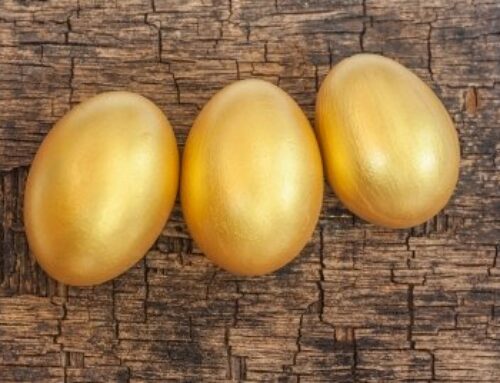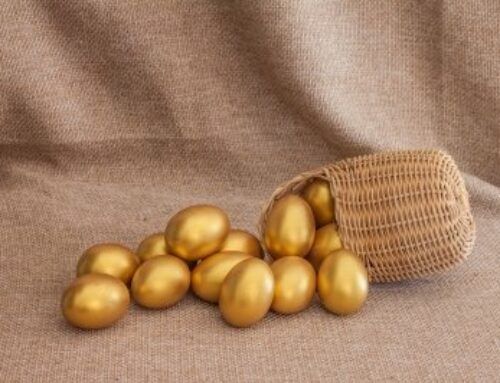
Image courtesy of stuart miles at FreeDigitalPhotos.net
Getting emails like this makes me smile every time:
Just wanted to thank you again for writing your book and to let you know that my egg quality has definitely improved following your advice in the book. I had my second IVF, and all eggs have fertilised, and I had two embryos transferred back. Last time only 33% of the eggs fertilised and I there was no transfer. This result was after 2.5 months of 75mg DHEA as you recommended.
What I “recommended” is simply what’s been published in several dozen DHEA studies, which almost invariably show improvement in both quality and quantity of eggs in women who are approaching the end of their ovarian reserve.
DHEA and poor egg quality
But very often I notice that women are afraid of taking DHEA (especially in the countries where DHEA needs a prescription). Sometimes they reduce dosage to the level where it’s uncertain that there is any physiological effect of DHEA on egg quality. And some women simply don’t have enough discipline and keep supplementing on and off, which is not good because the effects of DHEA wash out quickly (and anyway, it takes two to five months to reach peak benefits).
To take the anxiety which surrounds DHEA away, here are a few basic facts about this simple and helpful substance.
Dehydroepiandrosterone (DHEA) is the major precursor for most sex hormones. DHEA is made by the adrenal glands every day in every one of us, in big amounts (unfortunately, less when we become old ). Most of DHEA is secreted as DHEA-S (one sulphate group added), but can go back to DHEA – this shuttling among the precursors works in a flexible way and is often directed on the target tissue.
So you can think of DHEA as a simple and basic building block, which all kinds of cells take in to transform into whatever other substance or hormone is needed at the moment.
Both DHEA and DHEA-S (I mentionDHEA-S because it gets measured in the lab, and women are puzzled about what it means) hormones are bound to albumins, proteins which transport them in the blood to target tissues – ovaries, immune system, brain.
Already during pregnancy, DHEA and its metabolites are secreted by the fetal adrenal gland in large amounts. So our bodies are very much used to DHEA. It’s not a foreign compound or a medication like many women think. DHEA is always there when processes are at their highest. That’s why we have most DHEA when we are young and least when we get old.
Within weeks after birth, DHEA-S levels fall by 80% or more and remain low for many years, approximately until around puberty.

Image courtesy of photostock at FreeDigitalPhotos.net
Then, DHEA-S levels increase until the age of 20 to a maximum level roughly comparable to that observed at birth.
Levels then decline over the next 40 to 60 years to around 20% of peak levels. There is no mystery, and no disease behind it. It’s simple aging.
Supplementing DHEA is only the attempt to bring back this substance, which we once had when our eggs were a decade or so younger.
But this does not mean that anyone should supplement DHEA.
As the matter of fact, trials of DHEA replacement in the elderly have not produced convincing benefits. However, in particular groups of people, such as women with diminishing ovarian reserve and women with poor egg quality, the addition of DHEA has been shown in many studies to improve embryo and egg quality, in addition to improving mood, energy, and sex drive.
But having said this, I don’t wish to encourage any unreasonable supplementing experiments. Strongly elevated DHEA levels can cause symptoms of hyperandrogenism in women (facial hair, sweating, acne).
That’s why it’s good to control testosterone prior to and during DHEA supplementation. But how can you do that?
An initial workup should include total and bioavailable testosterone. Women who wish to increase fertility by means of improving egg quality should ideally increase and keep the testosterone at the level of young adults.
Here is where DHEA-S (this metabolite is more stable and gets measured in the lab) typically ranges in women in different age groups. Ideally you wish to place yours in the first one, where 25-year-old women are.
DHEA-S in different age groups (women)
18-29 years: 44-332 mcg/dL
30-39 years: 31-228 mcg/dL
40-49 years: 18-244 mcg/dL
50-59 years: <15-200 mcg/dL
> or =60 years: <15-157 mcg/dL
As you see, there is some individual variation, but mean DHEA values generally decline with age.
If you are supplementing DHEA on your own like many women over 35 do, please keep in mind that many drugs and hormones can affect DHEA-S levels. Drugs which are commonly used which can affect DHEA-S levels are insulin, oral contraceptives, corticosteroids, some antidepressants, metformin, and prolactin. In the case you are taking therapies for any fertility issues, I would like to say that I would never take DHEA and herbs at the same time! Though there may not be any cross-reacting at all, the thing is that no one can tell you for sure because it has not been thoroughly tested yet (and it is difficult to test because each plant can have dozens or even hundreds of compounds which orchestrate together).
So if you have issues with poor egg quality, stick with the compounds which have been proven to work, and put DHEA at the top of your list. And please let me know what your experiences were!
A few excellent DHEA supplements:







Comment…Where do I get DHEA in Nairobi Kenya
I had 2 icsi cycle with different method and my embryo had poor quality.my doctor said all medical tests okay. She offer me to repeat cycle with new medication.what should i do doctor?
hi yasaman,
as said all over the blog, i’m not a medical specialist and therefore not entitled to give advice related to diagnosis and stimulation protocols. if you would like to work on improving the quality of your eggs, you are very welcome to join at one of my regular skype-sessions fridays, here you an find more information https://paleo-mama.com/contact-talk-to-me-improve-fertility/
I turned 40 in June and have been taking DHEA since January – I did get pregnant in April but unfortunately it ended in miscarriage. I’m back on the DHEA now and trying again – fingers crossed!
good luck, rachel!
Hello!
First off, I found your book fascinating and I’m so eager to get started with a plan! I had a saliva hormone test recently and it showed high estrodial and DHEAS, moderate testosterone, and normal progesterone. I wanted to take DHEA, but they definitely didn’t recommend it. I am 35 years old and have quite an extensive reproductive history, and with those labs and others (elevated fasting insulin), they are now thinking I may have PCOS. I’ve been pregnant 8 times, including my 5 and 6yo daughters, a baby that passed away, a molar pregnancy, and 4 miscarriages. I am currently taking a multivitamin, Omegas, calcium, vitamin D, Ovasitol, B-Complex SR, Vitex, Selenium, and a probiotic. I have a smoothie that includes maca and Ceylon cinnamon, along with flax. I take 1/2tsp of royal jelly daily. I’m not sure if this is where to include this information, or if another email is preferred. Please let me know either way. 🙂 Thank you again for authoring this book, it is easy to read and extremely helpful and optimistic!
thank you kristi, i am very happy you liked my book. i don’t reply to the individual questions in the comments for privacy reasons. i recommend that you write me an email or visit one of my regular skype-sessions on friday, here you can find more information https://paleo-mama.com/how-to-contact-me/
Yes, DHEA can help some women, but it has also been shown to damage eggs in others. I took DHEA for my 3rd IVF, 50 mg daily as I have very low AMH at 33 years old, and had very poor quality eggs. Too much testosterone can have a negative impact, as fertility specialists are now starting to understand. It certainly is not the miracle cure that it is made out to be, and can infact be very damaging.
dear jennifer,
i am aware of several dozen studies with DHEA and none of them describes DHEA as “damaging for eggs”. on the other side, i do understand your concerns regarding too much testosterone. the point with supplementing DHEA is to elevate the testosterone levels to the point that the egg quality improves, while avoiding any testosterone-induced side effects (like acne, increased sweating etc). that’s why i recommend to consult a fertility specialist before self-administering DHEA, because he will order a blood test and help keep the testosterone level under control.
Hey Darja, I have PCOS, and I am currently taking Metformin due to insulin resistance. my AMH is 5.82 ng/ml. Just did 1st IVF, 18 eggs retrieval, and 11 fertilized, 2 out of 10 for PGS testing without any chromosome issue…but these 2 stopped growing on Day 5, nothing for transfer…I will be 36 this year. Can I take DHEA? if I can, how long I should take? I am planning to do the 2nd IVF in July. Thank you so much for the information, and we will buy your book tonight to learn more.
dear chisty. i’m a biologist and dedicated to understanding egg health and how to improve it naturally, with supplements, diets etc. for any details on diagnosis and medications you need to consult a medical doctor. having said this, i would recommend that you contact me via email as explained here https://paleo-mama.com/how-to-contact-me/ and together we will work on finding the best solution and the best mix of supplements for your particular situation. best wishes
Hi Darja,
I am very excited to have got your website!! Thanks ever soo much.